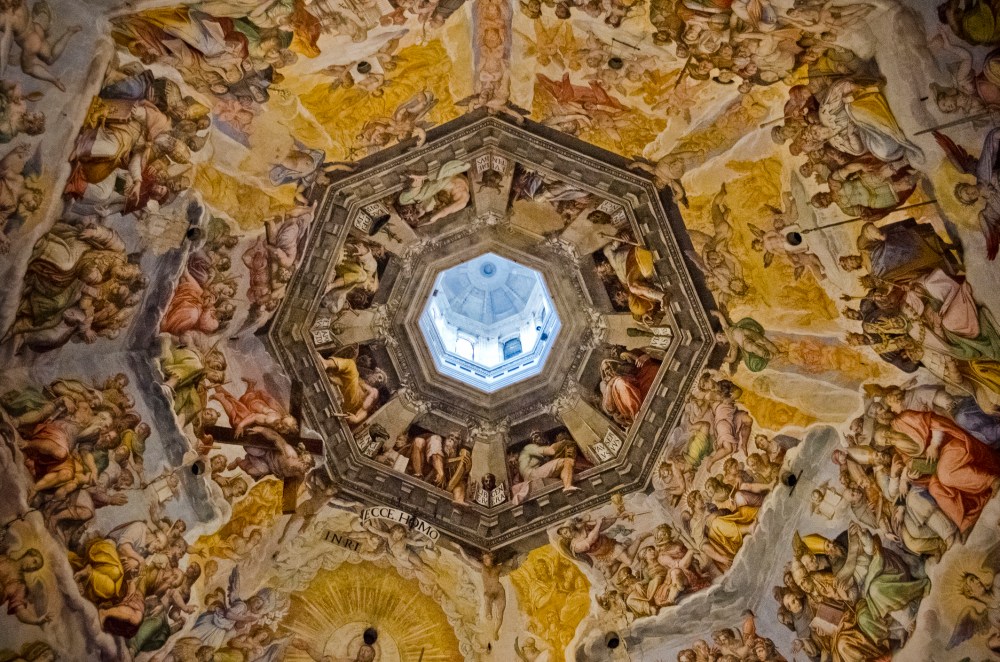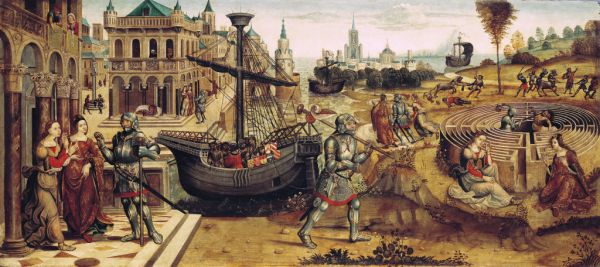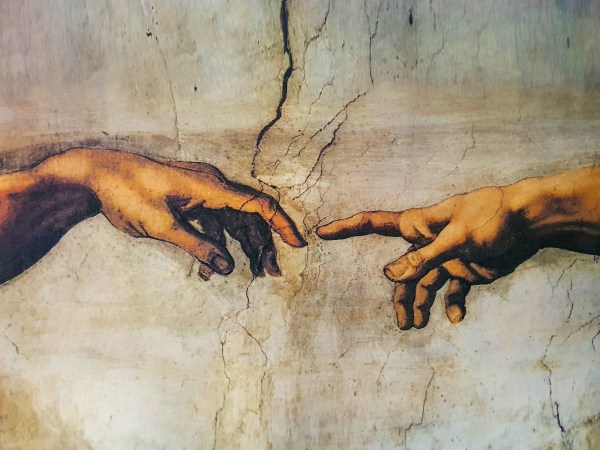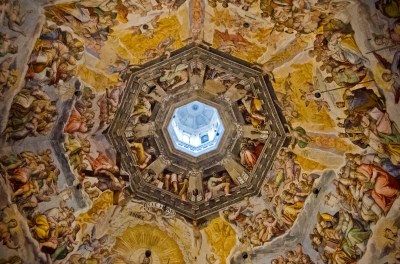Hey,
The kingdom of God in heaven is, well, a kingdom.
In other words, theologically—at least in the Abrahamic tradition—the best form of government is a kind of despotism. Oh, it’s the best sort of despotism, eternally just and righteous. But I think I’m on firm biblical and Quranic grounds when I say that heaven isn’t a democracy or a republic. As God explained to Lucifer, it’s literally my way or the highway … to hell.
Of course, the catch is that it’s not of this earth. It’s not for the here and now, but the hereafter. Yes, I know it gets more complicated than that. Many movements have argued, and still argue, that a kingdom of heaven on Earth can be created on, well, Earth. I spent a long time digging around in the social gospel movement of the early 20th century, and I can go on for quite a while about how the progressives wanted to create precisely that. As Richard Ely, the dean of the “Wisconsin School” of progressives and the founder of the American Economics Association put it, “I take this as my thesis: Christianity is primarily concerned with this world, and it is the mission of Christianity to bring to pass here a kingdom of righteousness and to rescue from the evil one and redeem all our social relations.”
This is where I would spend a few paragraphs revisiting the idea of immanentizing the eschaton—the effort to make what is reserved for the hereafter the tangible policies of the here and now. But let’s just assume I’ve done that. Though I do love the idea that the government that can’t get more than a handful of electric car charging stations built can, with just a bit more effort, create a perfect and heavenly society for all.
Of course, lots of people who want to create a heaven in the here and now are motivated to do so because they don’t believe in the heaven of the hereafter. Lots of progressives I’ve argued with have rejected the claim they want to create a heaven on earth as so much religious nonsense. They care about “optimal policies” and “inclusion,” not creating a righteous realm. To which I say, “tomayto, tomahto.” Utopianism today can often be summed up as the belief that the government can love you and treat you like a loved member of a family. That’s what “righteous relations” means stripped of its theological connotations.
Liberalism in the dock.
For people who think that government should be the agent of establishing righteousness from coast to coast, liberalism—I mean the liberalism of the founders, Smith, Locke, Hume, Montesquieu, Burke, et al.—is either amoral or immoral. The illiberals of the right tend to argue it is amoral. “Procedural liberalism” as some of them call it, is too committed to neutral rules that insufficiently value and promote the highest good.
I’ve spent a lot of time arguing against this. If you think the right to confront your accuser is a neutral rule, you’ve got a funny idea of what neutrality is. If you think that having a right to be secure in your person and property, the right to worship—or not worship—as you see fit, or the right to associate and travel without the permission of some bureaucrat, police officer, or goon, is neutral, then you have a very confused understanding of tyranny. I’m pretty sure most of the innocent prisoners recently released from Syrian prisons—or the Russians currently still in them—would see a little “procedural liberalism” as more than morally neutral.
Meanwhile, the illiberals of the left—who manage to avoid being called illiberal by the progressives who constantly fret about right-wing illiberalism—tend to argue that liberalism is immoral, at least when it produces consequences they don’t like. A free market—eek! “neoliberalism”!—is immoral if it leads to inequality, or climate change, etc. Free speech is immoral if it allows the utterance of words that “hurt.” Private property is theft, as some like to say. Indeed, Rousseau laid down this argument long ago:
The first man who, having enclosed a piece of ground, bethought himself of saying This is mine, and found people simple enough to believe him, was the real founder of civil society. From how many crimes, wars and murders, from how many horrors and misfortunes might not any one have saved mankind, by pulling up the stakes, or filling up the ditch, and crying to his fellows, “Beware of listening to this impostor; you are undone if you once forget that the fruits of the earth belong to us all, and the earth itself to nobody.”
We’re still debating the morality of UnitedHealthcare CEO Brian Thompson’s assassination by a kid who thinks our “neoliberal” health care system is so evil it justified cold-blooded murder. Speaking of which, I found the latest poll on this issue horrifying. From Spencer Kimball of Emerson College Polling:
While 68% of voters overall reject the killer’s actions, younger voters and Democrats are more split — 41% of voters aged 18-29 find the killer’s actions acceptable (24% somewhat acceptable and 17% completely acceptable), while 40% find them unacceptable; 22% of Democrats find them acceptable, while 59% find them unacceptable, this compares to 12% of Republicans and 16% of independents who find the actions acceptable, underscoring shifting societal attitudes among the youngest electorate and within party lines.
Please don’t tell me you’re worried about the rise of illiberalism in America if you’re not willing to condemn politically motivated … checks notes … murder.
Again, I am fully prepared to make the case that liberalism—due process, inalienable rights, free enterprise, the sovereignty of the individual—is objectively moral and good. Indeed, as I argued in my last book, if you take seriously the things that progressives since Ely (or Marx or even to some extent Rousseau) believed the government should do in the name of morality, liberal democratic capitalism is the most moral system ever created—even though, alas, it doesn’t feel like it. Liberal democratic capitalism is overwhelmingly responsible for reducing poverty and spreading prosperity, curing diseases, extending human lives, democratizing education and literacy, and expanding freedom. Not perfectly, not uniformly, not all at once, and not without sometimes horrific mistakes and even crimes (sometimes, but not always, committed in its name). But compared to what came before it, even if you think liberalism is evil, it is still—far and away—the lesser of all the evils on offer over the last couple hundred thousand years.
The hedge.
And that’s the point that gets lost in all of the liberalism debates in our politics.
I just want to make the point that liberalism and democracy are a hedge, a hedge against worse outcomes over the long haul. You don’t educate your kids to guarantee they’ll be rich. You educate your kids as a hedge against being poor. Likewise, you don’t embrace liberal democracy to guarantee the best society imaginable. You embrace liberal democracy—which in America can simply be called “constitutionalism” because the Constitution is a liberal democratic charter—because it’s a hedge against worse systems. Elections aren’t for electing saviors, they’re for firing incompetents in order to give someone else a chance to be slightly less incompetent.
Constitutional rules are not guarantors of the best possible outcome in the moment; they are a hedge against the worst possible outcome over the long term. Rule-breaking—suspending an election, ignoring Congress, abusing the pardon power, whatever—can have very strong arguments on its side if all you care about is the immediate results. But if you care about the results over the long run, then you shouldn’t break the rules unless the consequences really are near-existential. (People understand this, which is why politicians and partisans keep insisting everything is an existential crisis—so they can have permission to break the rules.)
When arguing with utopians—and that’s what anybody, left or right, who argues for creating a heaven on earth is—liberalism is always unappealing and unsatisfying precisely because it is not utopian. It’s a bulwark against strong men, saviors, redeemers, crusades, fundamental transformations, and revolutions. But we’ve somehow convinced people it’s the means of delivering revolution and transformation. And that’s why politics has been such a long string of disappointments for the last quarter century.
The Achilles’ heel of liberal democratic capitalism is that it doesn’t fill the hole in your soul. It merely creates opportunities for you to find something that will. The illiberals of left and right want a system that fills their souls (or satisfies their will-to-power) and liberal democratic capitalism or constitutionalism stands in their way.
I got to thinking about this because I just had Musa al-Gharbi on The Remnant to discuss his book, We Have Never Been Woke. He argues that we have had many “Great Awokenings” over the years. Given that I’ve been arguing for a long time that most new ideas aren’t new, it’s hardly a surprise that I agree with him. I still see the current chapter of wokeness like it’s the second half of a conversation I started in college during the era of “political correctness.” The political or philosophical threats to liberalism are, always, by definition going to be illiberal. And most illiberal ideas are older than dirt.
And the defense against them is to stick to the rules.
As we head into another Trump administration, it’s already obvious that he will want to break rules. It’s also obvious that those resisting him will want to break rules to stop him. And Trump’s protectors will see that rule-breaking as an excuse to break even more rules to stop the rule breakers. And on it will go.
This cascade of norm violations is how republics die. So my advice is: Defend the rules. That’s it. It won’t guarantee any outcome, save perhaps the continuation of the rules themselves. And that’s good enough.
And if you want to tell me that Trump is the devil or that his enemies are demonic, fine. I’ll still respond: Stick with the rules.
In case you need help understanding this point, or help explaining it to others, here’s a handy excerpt from the film version of A Man for All Seasons:
William Roper: So, now you give the Devil the benefit of law!
Sir Thomas More: Yes! What would you do? Cut a great road through the law to get after the Devil?
William Roper: Yes, I’d cut down every law in England to do that!
Sir Thomas More: Oh? And when the last law was down, and the Devil turned ’round on you, where would you hide, Roper, the laws all being flat? This country is planted thick with laws, from coast to coast, Man’s laws, not God’s! And if you cut them down, and you’re just the man to do it, do you really think you could stand upright in the winds that would blow then? Yes, I’d give the Devil benefit of law, for my own safety’s sake!







Please note that we at The Dispatch hold ourselves, our work, and our commenters to a higher standard than other places on the internet. We welcome comments that foster genuine debate or discussion—including comments critical of us or our work—but responses that include ad hominem attacks on fellow Dispatch members or are intended to stoke fear and anger may be moderated.
With your membership, you only have the ability to comment on The Morning Dispatch articles. Consider upgrading to join the conversation everywhere.